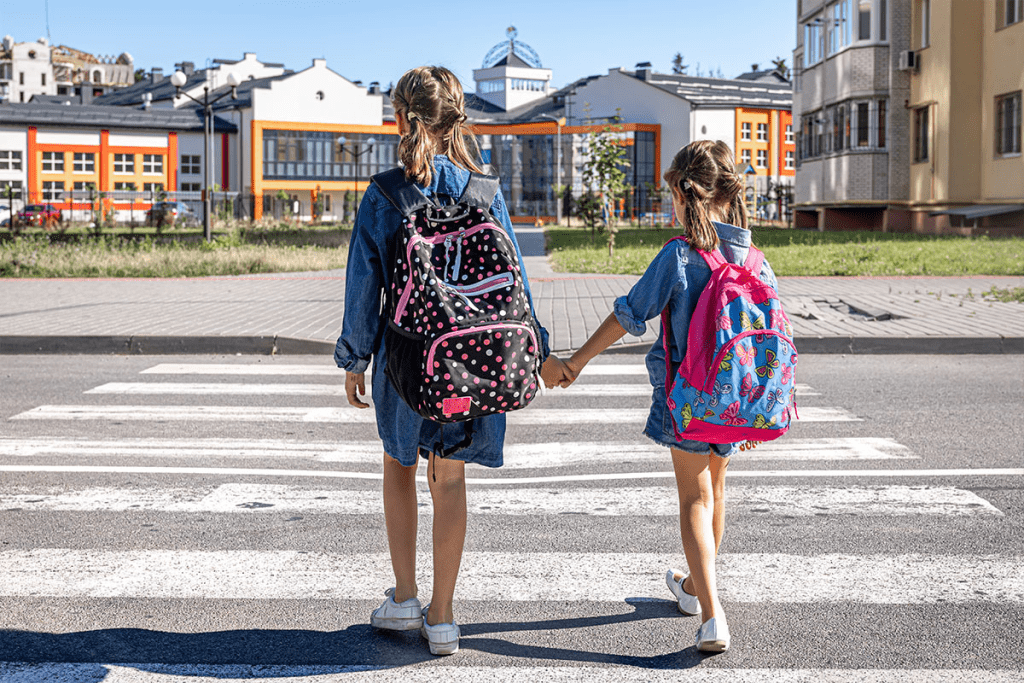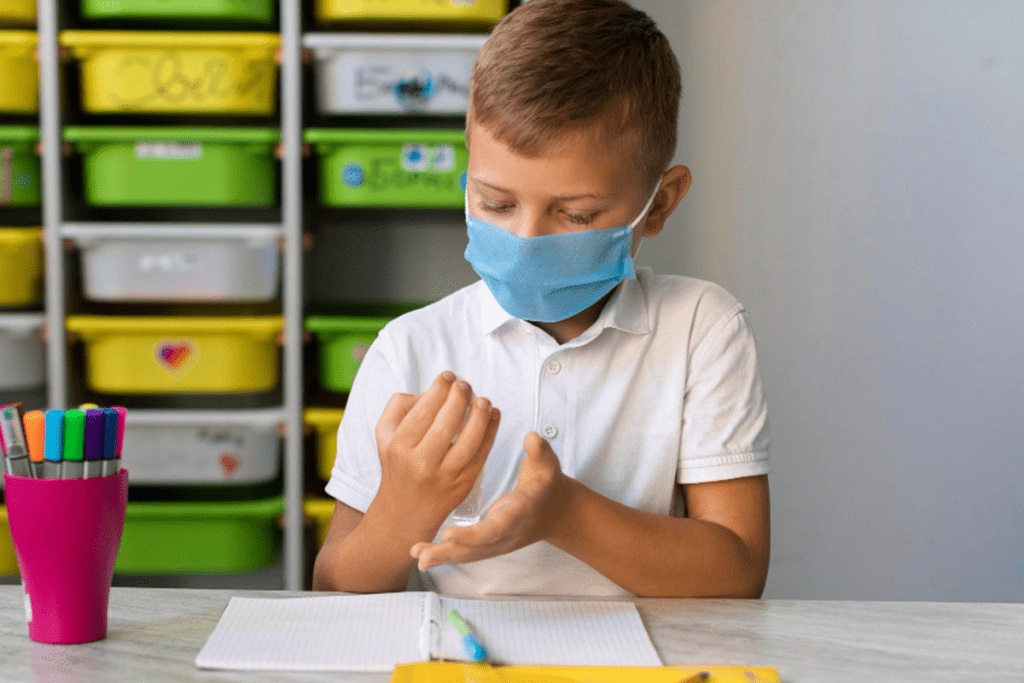Last Updated on November 12, 2025 by
For families dealing with childhood cancer, a big question is: can children safely attend school while receiving chemotherapy? This is a major worry for parents, teachers, and doctors. They must find a balance between treatment needs and keeping kids in school.
The American Cancer Society says can you go to school with cancer. it’s important for kids to stay connected to school. School helps them feel normal, learn, and make friends. School helps them feel normal, learn, and make friends.

Going to school during chemotherapy is tough, but it’s good for kids. It helps them feel like themselves again, makes friends, and keeps their minds sharp. We want to help find ways to make school work for kids during treatment.
When kids go through chemotherapy, it often changes how much school they can attend. This is because the treatment can have side effects. Knowing about these effects helps figure out the best way to keep up with school during this time.
Chemotherapy can lead to side effects that make it hard for kids to go to school. Some common ones are:
The Children’s Oncology Group says kids with cancer might miss school because of treatment, side effects, or feeling too sick. It’s key for parents and teachers to team up to help these kids stay in school.

Knowing about common chemotherapy side effects like weakened immune systems and tiredness helps us support kids. We can help them keep up with schoolwork, even when it’s tough.
Deciding if a child can go to school during chemotherapy is complex. It involves checking their health and possible risks. This is key to keeping them safe and supporting their learning and feelings.
Chemotherapy can weaken a child’s immune system, making them more likely to get sick. Doctors check the risk of getting sick by looking at the child’s white blood cell count. They decide if it’s safe for the child to be in school, where they might meet germs.

Doctors usually say no to school when a child is very weak or has side effects. The aim is to keep them safe from getting sick. Each case is different, based on the child’s health and treatment.
Going to school is key to a child’s well-being, giving them a sense of normalcy. Going back to school can be a good thing if it’s okay with their doctor. Doctors, families, and schools work together to make sure it’s safe for them to return.
Teachers are very important in helping kids with cancer. They need to understand the child’s situation and what they need. Knowing more about cancer helps teachers support the child well. The American Academy of Pediatrics says kids with cancer might need special school plans.
Creating a tailored school reentry plan is key for kids with cancer to succeed in school. A well-structured plan helps a child smoothly get back to school after chemotherapy.
The Children’s Oncology Group suggests making a personalized education plan. This plan supports kids with cancer in their school and personal needs. It requires teamwork between healthcare providers, educators, and family members.
Starting slow is often the best way for kids to get back to school. This means starting with part-time attendance or online classes. Communication with teachers and school administrators is vital for a smooth transition.
Parents and healthcare providers should work with the school to create a schedule. This schedule should include rest periods and medical appointments as needed.
Kids going through chemotherapy might need special help in school. This can include modifications to their class schedule, extra time for assignments, and changes to physical education.
It’s also important to teach teachers and classmates about the child’s condition. This helps reduce stigma and promotes understanding.
When kids are on intense chemotherapy, their immune systems are weak. We advise avoiding crowded places or people with illnesses.
Schools can help by promoting hand hygiene. This includes teaching students and staff to wash their hands often.
Parents should know when to keep their child home to prevent illness. Signs like fever, vomiting, or severe tiredness mean it’s time to stay home.
We suggest having a clear plan with the school for reporting absences. Make sure the child has support, like online learning materials, when they’re not in school.
Children with cancer have many educational choices beyond regular school. These options help keep their learning on track and support their growth during tough times.
There are several educational alternatives for kids with cancer. These include:
These alternatives offer many benefits. They help kids stay on top of their schoolwork, keep social connections, and feel less isolated.
For these alternatives to work well, parents, teachers, and doctors need to work together. They can create a learning plan that fits the child’s needs. This ensures they do well in school and emotionally.
By using these educational options, we can make sure kids with cancer keep learning. This supports their health and happiness.
It’s key to balance education and health when dealing with cancer. Studies show that going to school helps kids in many ways. It boosts their learning, social skills, and emotional health.
The National Cancer Institute says school helps kids feel like life is getting back to normal. This is after they’ve gone through cancer treatment.
Whether a child can go to school with cancer depends on many things. Parents need to know about medical needs and support options. This helps them decide what’s best for their child’s education and health.
It’s all about supporting kids to keep up with school and stay connected with friends. Working together with doctors, teachers, and families is important. This way, we can help kids manage school and treatment during tough times.
Chemotherapy can lead to side effects like a weakened immune system, tiredness, and physical issues. These can make it hard for a child to go to school.
Doctors check if a child is at risk for infections and if their immune system is weak. They decide if it’s safe for the child to go to school.
A school reentry plan is a detailed strategy for a child’s return to school. It includes gradual steps, needed adjustments, and changes to ensure the child’s safety and success. It’s key to help kids with cancer smoothly go back to school.
Teachers are vital in supporting kids with cancer. They need to understand the child’s needs, offer necessary help, and make the classroom a welcoming place for everyone.
Yes, there are many support groups for families of kids with cancer. Online communities and social media groups, like those on Facebook, help families connect and share their stories.
Going to school during chemotherapy can bring back a sense of normalcy. It helps kids stay connected with friends and keeps their minds sharp. This can greatly improve their academic, social, and emotional health after treatment.
Parents can make informed choices about their child’s education during treatment by understanding the medical aspects and available support. This ensures their child’s needs are met and their well-being is supported.
Subscribe to our e-newsletter to stay informed about the latest innovations in the world of health and exclusive offers!